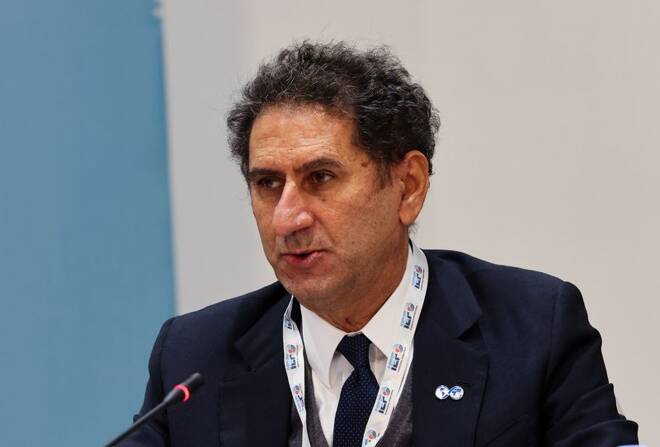Advertisement
Advertisement
Ukraine crisis will speed energy transition in mid-term, says renewables agency chief
By:
TOKYO (Reuters) - The Ukraine crisis will likely accelerate transition to greener fuels in the medium term as higher use of renewables can help improve the environment and ensure energy independence, the head of the International Renewable Energy Agency (IRENA) said.
TOKYO (Reuters) – The Ukraine crisis will likely accelerate transition to greener fuels in the medium term as higher use of renewables can help improve the environment and ensure energy independence, the head of the International Renewable Energy Agency (IRENA) said.
Fossil fuel use could rise in the short term to secure stable supply, but risks to stability of energy supplies highlighted by Russia’s invasion of Ukraine would support the global shift away from polluting fuels, Director-General Francesco La Camera said. Moscow calls its actions in Ukraine “a special operation”.
“In the very short term, concerns of the governments are to provide energy for their citizens,” La Camera told Reuters in an interview on Monday, saying some countries are making use of everything they have, including ageing coal-fired power plants.
Germany is delaying planned shutdowns of some coal plants while Britain is turning to old coal power units as a “last resort” in case other sources cannot provide enough electricity through the coming winter.
“But in the mid- and long term, the Ukraine crisis will bring an acceleration to the energy transition because governments finally realise that going for renewables is not only good for the environment, jobs, GDP, but also good for ensuring higher energy independency,” he said.
“Renewables are the most competitive way to produce electricity today,” he added.
The global energy crisis has also led to the renewed interest in nuclear power. Governments across Europe and Asia are extending lifespans for their aging nuclear plants, restarting reactors and dusting off plans to resume projects shelved after the 2011 nuclear crisis in Fukushima, Japan.
“In a general term, nuclear power is not the best option because of cost, security concern and because the contribution they could give will come too late,” La Camera said, referring to the length of time it takes to build a new nuclear power plant.
(Reporting by Yuka Obayashi; Editing by Kenneth Maxwell)
About the Author
Reuterscontributor
Reuters, the news and media division of Thomson Reuters, is the world’s largest international multimedia news provider reaching more than one billion people every day. Reuters provides trusted business, financial, national, and international news to professionals via Thomson Reuters desktops, the world's media organizations, and directly to consumers at Reuters.com and via Reuters TV. Learn more about Thomson Reuters products:
Did you find this article useful?
Latest news and analysis
Advertisement
